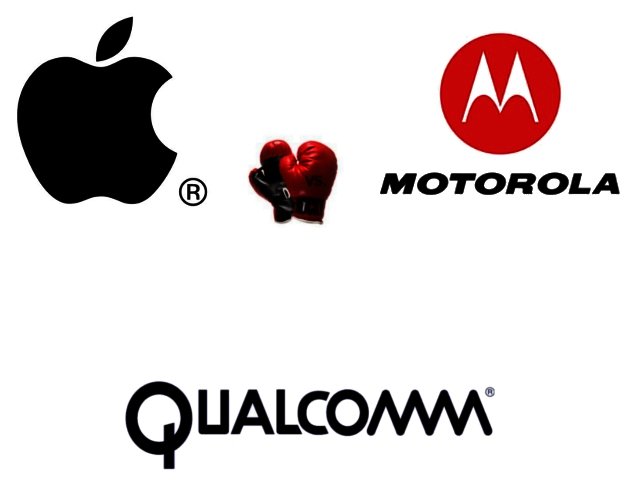PREVIOUS ARTICLENEXT ARTICLE
NEWS

Apple sues Motorola Mobility over patent licencing
By Hanleigh Daniels 13 February 2012 | Categories: news
The tit-for-tat patent battles that featured prominently in the news during 2011, looks to be on course to continue this year. The most recent event sees Apple filing a counter lawsuit against Motorola Mobility in a US court.
According to Reuters this lawsuit was filed on Friday in a San Diego federal court. Its basis is that Motorola Mobility’s German lawsuit against Apple goes against the terms of a patent licensing agreement between the RAZR maker and Qualcomm. This licencing agreement covers wireless technology Qualcomm uses in its MDM6610 chip, as well as Qualcomm’s clients that utilise this chip within their products.
Apple’s latest legal action comes after the company recently had to remove a number of its 3G-enabled mobile products (not including the latest iPhone model) from its German online store, after Motorola Mobility scored a legal victory against the iPhone and iPad maker. All of the products were quickly placed back on the online store though, after Apple was granted a temporary halt on the sales ban.
The Cupertino-based tech company is alleging that Motorola Mobility is engaged in “an aggressive international campaign of litigation that flies in the face of its promise to license its cellular standards essential patents on FRAND [fair, reasonable and non-discriminatory] terms.”
Cupertino’s latest lawsuit specifically addresses the iPhone 4S, which Motorola Mobility is looking to ban sales of in Germany as well as other countries. The iPhone 4S employs Qualcomm’s MDM6610 baseband chip, which is why Apple did not remove it from the German online store along with the other 3G-capable products (including the iPhone 4 and iPhone 3GS).
According to the Apple, its use of that chip means that its newest iPhone model is safe due to the patent license deal between Qualcomm and Motorola Mobility.
According to Reuters this lawsuit was filed on Friday in a San Diego federal court. Its basis is that Motorola Mobility’s German lawsuit against Apple goes against the terms of a patent licensing agreement between the RAZR maker and Qualcomm. This licencing agreement covers wireless technology Qualcomm uses in its MDM6610 chip, as well as Qualcomm’s clients that utilise this chip within their products.
Apple’s latest legal action comes after the company recently had to remove a number of its 3G-enabled mobile products (not including the latest iPhone model) from its German online store, after Motorola Mobility scored a legal victory against the iPhone and iPad maker. All of the products were quickly placed back on the online store though, after Apple was granted a temporary halt on the sales ban.
The Cupertino-based tech company is alleging that Motorola Mobility is engaged in “an aggressive international campaign of litigation that flies in the face of its promise to license its cellular standards essential patents on FRAND [fair, reasonable and non-discriminatory] terms.”
Cupertino’s latest lawsuit specifically addresses the iPhone 4S, which Motorola Mobility is looking to ban sales of in Germany as well as other countries. The iPhone 4S employs Qualcomm’s MDM6610 baseband chip, which is why Apple did not remove it from the German online store along with the other 3G-capable products (including the iPhone 4 and iPhone 3GS).
According to the Apple, its use of that chip means that its newest iPhone model is safe due to the patent license deal between Qualcomm and Motorola Mobility.
In other patent related news a Dutch court recently ruled against Apple’s injunction to ban the sales of Samsung’s Galaxy Tab 10.1 in the Netherlands.
USER COMMENTS
Most Read Articles
Read

Magazine Online
TechSmart.co.za is South Africa's leading magazine for tech product reviews, tech news, videos, tech specs and gadgets.
Start reading now >
Download latest issue
Have Your Say
What new tech or developments are you most anticipating this year?
New smartphone announcements (46 votes)
Technological breakthroughs (29 votes)
Launch of new consoles, or notebooks (14 votes)
Innovative Artificial Intelligence solutions (29 votes)
Biotechnology or medical advancements (24 votes)
Better business applications (160 votes)



